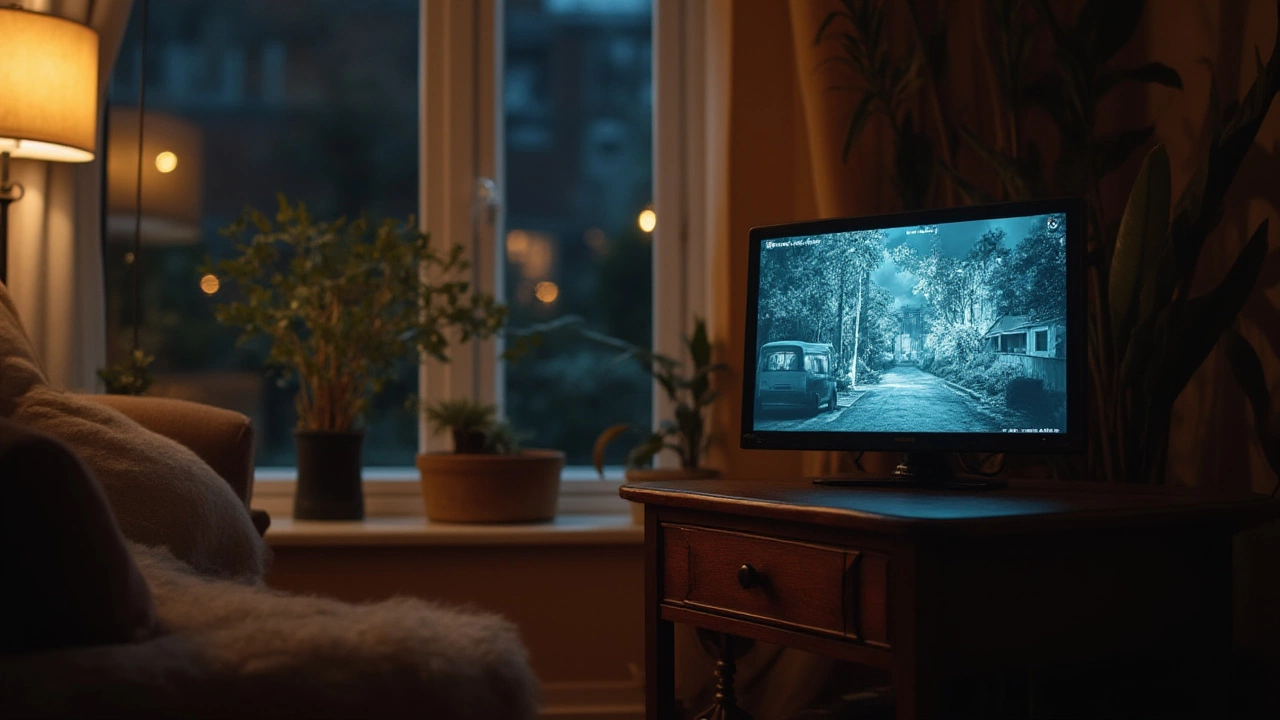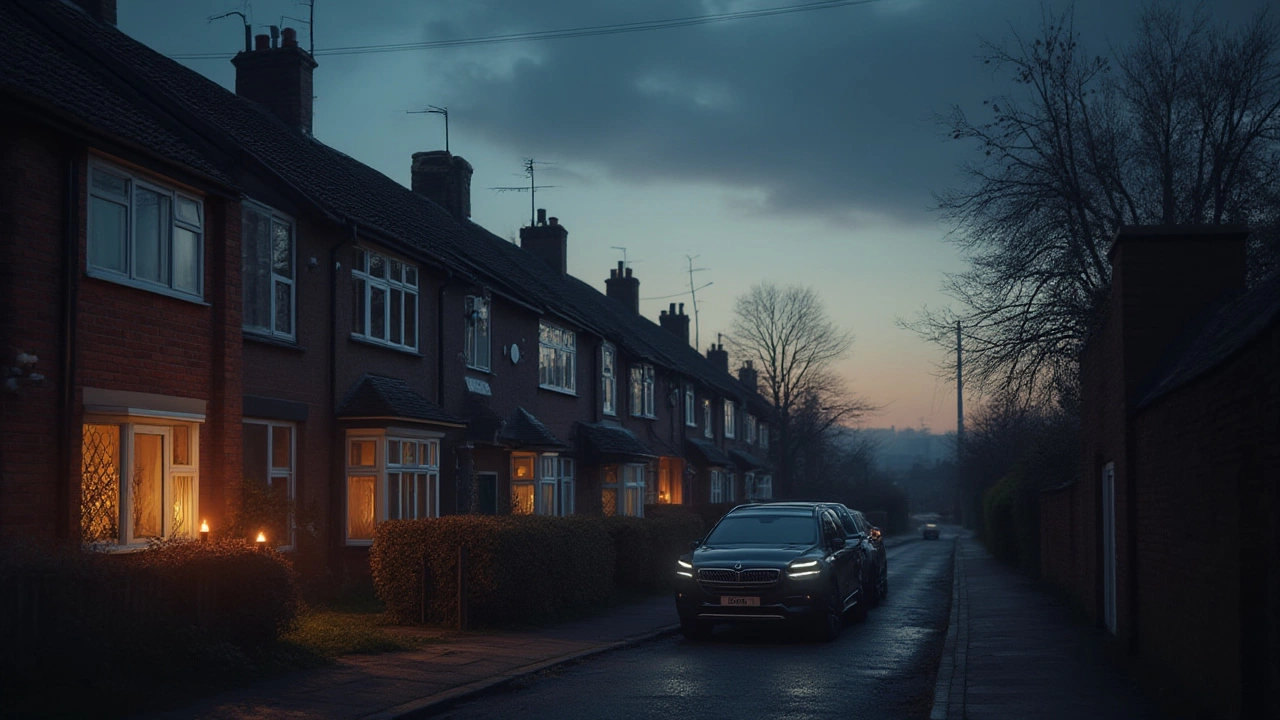Picture this: a rainstorm’s howling outside, the wind howls, and your whole street drops into pitch-black darkness. In those moments, most folks worry about their fridge or their phone charger. But someone, somewhere, is thinking, “Hey, are my security cameras even working right now?” Power outages don't just mess with your groceries and internet—they can seriously impact your home’s safety setup. Burglars know this too. After all, what’s better than a neighborhood that can’t even see what’s going on?
Understanding How CCTV Systems Rely on Electricity
CCTV cameras aren’t magical eyes floating around—they’re electronic devices that need a power source to do their job. Most home and business CCTV setups draw their lifeblood from the main electrical grid. There are two main camera types: traditional analog systems and newer IP cameras. Analog systems typically use digital video recorders (DVRs), while IP (internet protocol) cameras rely on network video recorders (NVRs). Either way, both DVRs and NVRs, and the cameras they record from, need power 24/7.
If a camera loses power, it loses the ability to record live footage. That’s a hard fact. No matter how high-quality your lens is, no juice means no video. When lights go out, your system’s LED indicators go dark and, with most setups, so does your coverage. Oh, and it doesn't matter if you use a wireless camera—wireless refers to how the video is transmitted, not how the camera is powered. Even battery-operated cameras aren’t fully immune, as the batteries need to stay charged and, over time, they drain faster than you might think.
Here’s another thing: many folks install their DVRs or NVRs in a closet, under the stairs, or some hidden corner. Guess what? If that recording box loses power, even if your cameras could run, nothing gets saved. It’s a system, after all. If one bit stops, the rest can’t keep up. So, when the power cuts out, standard CCTV cameras are as blind as anything else plugged into the wall.
Why Most CCTVs Stop Recording During Blackouts
It’s easy to assume some tech wizardry would keep things rolling during a blackout, but the reality is much simpler. Most people don’t buy CCTV systems with built-in backup power. Manufacturers typically expect you to connect everything straight to regular AC power. Security pros warn that without a backup power plan, CCTV systems will drop out as fast as any lamp in your living room. That gives intruders a golden opportunity. There’s even been real cases where burglars cut off power from the outside before making their move, leaving scenes with zero CCTV evidence.
A lot of newer security cameras look fancy—tiny, no visible wires, sometimes gloomy red blinking lights at night. But peel back the plastic, and they’re still just small computers with a big appetite for steady electrical flow. Blackouts, brownouts, even power surges can fry components or corrupt saved footage. Unless you’ve done something extra in your setup, expect your security feed to freeze up the moment the lights flicker out.
Think cloud recording saves you? Not always. Sure, cameras that upload footage straight to the cloud don’t rely on a recorder box—but they still need power and, crucially, a working internet connection. During heavy storms or major outages, your router likely goes out too. So, you end up separated from both live and saved video. Some folks think their external hard drive will save the day, but again, no power means nothing gets written.
So, if you've ever wondered why criminal reports spike after a city loses power for hours, security gaps caused by dead cameras are a big part of it. Without electricity, today’s typical CCTV system doesn’t just pause recording—it’s flat out offline. No new footage gets stored, and whatever was being recorded may get corrupted if power spikes when it's back.

Backup Power Solutions: Keeping Your Cameras Alive
Now the good news: you’re not stuck with blackout-prone cameras forever. There are workarounds, but not everyone takes the extra step. The most common fix is an uninterrupted power supply (UPS), basically a big backup battery for your electronics. When the grid cuts out, the UPS kicks in—think of it like the spare tire for your security gear. You plug the DVR/NVR and a few cameras into the UPS, and they keep running for 30 minutes to a few hours, depending on its size.
This isn’t science fiction. A standard residential UPS from a known brand can run a small CCTV setup long enough to bridge typical blackout gaps. If your area sees frequent outages, especially during storms, investing in a reliable UPS is a smart move. For longer coverage, a generator works, but that’s noisy, gassy, and expensive for just your cameras. Still, businesses and folks with big neighborhoods often install standby generators that start automatically, keeping the entire network and all cameras going smoothly.
Let’s talk about solar. There’s an exploding trend in solar-powered security cameras. These are perfect for remote locations where there’s zero grid coverage. Solar CCTVs use a small panel to charge an internal battery during the day. At night, or when the sun’s hiding, the battery takes over. This isn’t ideal for every home—panels need lots of sun, and performance drops during long dark stretches—but it’s solid for driveways, backyards, or cabins.
DIYers sometimes rig regular cameras to car batteries. It works, but it’s a pain to maintain, and you must monitor battery levels all the time. Commercial systems use deep-cycle batteries wired into the recording box. You’ll still need to check, charge, and eventually replace these batteries, or install a battery management system. Just don’t forget, if you ask too much from a battery, it’ll die faster, and heavy draw from multiple cameras means everything could go dark before you expect.
Pro Tips to Maximize Surveillance When Power Goes Down
So, what can you actually do to stop blackout bandits from sneaking past your cameras? First, test your UPS regularly. Batteries degrade over time (usually a few years, even under the best care), so don’t just set and forget them. Set a reminder to run checkups, just like you would with smoke alarms. Watch for beeping alerts from your UPS—they usually mean it's time for a replacement.
If you’re installing new cameras soon, prioritize models with lower power consumption. The less electricity each camera draws, the longer your backup option will last. Brands like Arlo and Reolink now offer wireless, battery-powered cams that back up to the cloud or a small internal SD card. Remember though, these have limits: batteries need charging and sometimes may record at lower quality when operating on backup power.
Splitting your camera network’s power is smarter than running it all from a single circuit. If something goes wrong, you lose fewer cameras. If you can, wire your most important cameras—the ones watching entrances and valuables—to a separate circuit and a dedicated UPS. It’s a bit more upfront work but pays off when power drops. For pro-level setups, consider an auto-start generator, but read the reviews; not every generator is up to the job for sensitive tech.
Physical security still matters. Place cameras where it’s hard for someone to reach and tamper with wires or cut the power directly. Enclose cables in secure conduit rather than letting them dangle down a wall. Some folks add hidden mini-cameras powered by separate backup batteries, which run out fast but might capture key moments if everything else goes dark. A truly layered approach works best here.
Security isn’t all about electronics. A darkness-proof system mixes a little old-school with high-tech. Even a bright, battery-powered floodlight triggered by motion can scare away the wrong crowd. Install a few of these near your camera zones—they last days without mains power and make the space less inviting during an outage. Keep a flashlight handy. If you’re worried about footage loss, cameras that save clips locally (on SD cards) offer a small safety net—just know the limits, as storage will fill up if the power’s off for hours.
Power outages might feel like a temporary inconvenience, but when it comes to CCTV and your feeling of security, the stakes are much higher than a few warm leftovers in your fridge. With affordable backup options, smarter setups, and a pinch of prep, you can avoid giving intruders a free pass the next time your lights go out.

